
It took four years, but it's finally here. And it's good. Really good. That pretty much goes without question. The big question everyone has been asking: "Where does it fall in the band's discography?" Tough to answer, but we'll get to that in a little bit. First off, let's look at the album's individual merits.
Musically, the Kid A/Amnesiac sessions may have been the band's final frontier. Even if I had not heard each track off In Rainbows (excluding "Faust Arp") months ago from live bootlegs, nothing here would have thrown me for a loop. At the same time, Radiohead manage to reincorporate aspects almost all of their previous works flawlessly, creating a familiar yet fresh set of tracks.
In Rainbows is the band's most straightforward, traditional set of songs to date, or at least since the 1990s. Sure, "15 Step" features that "Idioteque"-type drum beat, and "All I Need" is built on a deep, rumbling synth. However, for the most part, Thom Yorke's vocals and lyrics are as direct and clear as they have ever been, and while the multi-guitart attack remains beautifully intact, most of the songs feature an actual guitar hook (gasp!).
For instance, opener "15 Step" consists of little more than frantic, techno drums and an uncomplicated (yet instantly catchy) guitar line that rolls through the chorus. Sure, Yorke's vocals start to echo during the second refrain, a group of children scream out at a couple points (yeah, it's kinda weird), and the band (presumably Ed O'Brien) throws some background noise in during the track's back half. For someone completely unfamiliar with Radiohead, the song would hint that Kid A exists, but the eerie synths and various electronic bells and whistles that characterized much of their last three albums (not all of Hail, but a good portion of it) are either absent or taking a backseat to serene, R&B-tinged guitar. Yes, the drums sound like Selway circa 2000, but its the chill yet lively juxtaposing guitar that creates the song's dramatic chemistry and signifies the band's shift back toward old-school Radiohead.
These types of subtleties drive In Rainbows to superb heights. Radiohead have not lost their sense of structure or nuance over the four year break, as the record ranks among their previous works despite being the least aggressive of their guitar-driven material. For example, "Weird Fishes/Arpeggi" moves steadily along with Jonny Greenwood's elegant arpeggios on guitar, but then brilliantly shifts to (what I believe is) a xylaphone when Yorke cries out "eaten by worms/and weird fishes". This lyric is the song's emotional focal point, and the ever-so-slight musical alteration breathes new life into an already mesmerizing track and perfectly highlights Yorke's key moment. The song never reaches that explosive climax (such as "Exit Music" or "Fake Plastic Trees"), but it doesn't have to in order to make its point. Essentially, In Rainbows asserts that the band may never return to the level of epic mastery once showcased on The Bends and OK Computer, but still kick everybody's ass by maintaining an extraordinary level of precision, focus, and artistic vision.

Musically, the Kid A/Amnesiac sessions may have been the band's final frontier. Even if I had not heard each track off In Rainbows (excluding "Faust Arp") months ago from live bootlegs, nothing here would have thrown me for a loop. At the same time, Radiohead manage to reincorporate aspects almost all of their previous works flawlessly, creating a familiar yet fresh set of tracks.
In Rainbows is the band's most straightforward, traditional set of songs to date, or at least since the 1990s. Sure, "15 Step" features that "Idioteque"-type drum beat, and "All I Need" is built on a deep, rumbling synth. However, for the most part, Thom Yorke's vocals and lyrics are as direct and clear as they have ever been, and while the multi-guitart attack remains beautifully intact, most of the songs feature an actual guitar hook (gasp!).
For instance, opener "15 Step" consists of little more than frantic, techno drums and an uncomplicated (yet instantly catchy) guitar line that rolls through the chorus. Sure, Yorke's vocals start to echo during the second refrain, a group of children scream out at a couple points (yeah, it's kinda weird), and the band (presumably Ed O'Brien) throws some background noise in during the track's back half. For someone completely unfamiliar with Radiohead, the song would hint that Kid A exists, but the eerie synths and various electronic bells and whistles that characterized much of their last three albums (not all of Hail, but a good portion of it) are either absent or taking a backseat to serene, R&B-tinged guitar. Yes, the drums sound like Selway circa 2000, but its the chill yet lively juxtaposing guitar that creates the song's dramatic chemistry and signifies the band's shift back toward old-school Radiohead.
These types of subtleties drive In Rainbows to superb heights. Radiohead have not lost their sense of structure or nuance over the four year break, as the record ranks among their previous works despite being the least aggressive of their guitar-driven material. For example, "Weird Fishes/Arpeggi" moves steadily along with Jonny Greenwood's elegant arpeggios on guitar, but then brilliantly shifts to (what I believe is) a xylaphone when Yorke cries out "eaten by worms/and weird fishes". This lyric is the song's emotional focal point, and the ever-so-slight musical alteration breathes new life into an already mesmerizing track and perfectly highlights Yorke's key moment. The song never reaches that explosive climax (such as "Exit Music" or "Fake Plastic Trees"), but it doesn't have to in order to make its point. Essentially, In Rainbows asserts that the band may never return to the level of epic mastery once showcased on The Bends and OK Computer, but still kick everybody's ass by maintaining an extraordinary level of precision, focus, and artistic vision.

While viewing Radiohead albums as a whole is always vital, these songs are just as great taken as individual works. Many fans (including myself) love to hear the band throw themselves into overdrive for the grinding, relentless "Bodysnatchers". Believe it or not, the band can still rock, even if nothing else on the album comes close to matching this early adrenaline rush ("Reckoner" [fortunately] holds none of the punk fury that characterized its original version). Despite the refreshing high energy of "Bodysnatchers", the quieter moments are the core of In Rainbows, from the gentle yet unsettling, long-time-in-the-making "Nude", to the aforementioned "Weird Fishes/Arpeggi", to the startlingly catchy acoustic ditty "Faust Arp".
The two best moments are two tense Yorke ballads: "All I Need", which builds from a simple, cavernous synth to a tornado of piano, chimes, and clattering drums, marking one of the key emotional punches of the record. The other centerpiece, "House of Cards", marks the record's most creative moment as Radiohead exhibit shades of soul music for the first time in their career. This may prove divisive among some fans, but the track is undeniably Radiohead. Whether or not you like Jonny Greenwood's breezy guitar hook, it's hard to deny Thom Yorke's sweeping, heartfelt vocals. The track stands as the most touching moment on In Rainbows and one of the warmest and nakedly emotional tracks in the Radiohead catalogue.
Despite the musical comparisons many fans are making between In Rainbows and OK Computer (and there is some ground for such comparison), this time around the lyrics seem less apocalyptic, less about crashing airplanes, child abuse, technology's corruption of society, or star-crossed lovers dying and joining each other in everlasting bliss. Yorke's lyrics are often quite basic, distinguishably more focused on love than dystopia.

You want mp3s? Just go get the album...for FREE!
The two best moments are two tense Yorke ballads: "All I Need", which builds from a simple, cavernous synth to a tornado of piano, chimes, and clattering drums, marking one of the key emotional punches of the record. The other centerpiece, "House of Cards", marks the record's most creative moment as Radiohead exhibit shades of soul music for the first time in their career. This may prove divisive among some fans, but the track is undeniably Radiohead. Whether or not you like Jonny Greenwood's breezy guitar hook, it's hard to deny Thom Yorke's sweeping, heartfelt vocals. The track stands as the most touching moment on In Rainbows and one of the warmest and nakedly emotional tracks in the Radiohead catalogue.
Despite the musical comparisons many fans are making between In Rainbows and OK Computer (and there is some ground for such comparison), this time around the lyrics seem less apocalyptic, less about crashing airplanes, child abuse, technology's corruption of society, or star-crossed lovers dying and joining each other in everlasting bliss. Yorke's lyrics are often quite basic, distinguishably more focused on love than dystopia.

Still, these aren't typical love songs, as his pessimism, uncertainty, anxiety, and weary sarcasm dominate the mood. His proclamation of "You're all I need" seems likes a lovely lyric, but the song's verses (rich with unnerving animal imagery) express a desire to escape ("I'm just an insect/Trying to get out of the night") and a feeling of claustrophobia and suffocation ("I'm an animal/Trapped in your hot car"). Of course, it's a Thom Yorke (ie. consumed with doubt) song, so as soon as he screams "It's all wrong" he immediately fires back "It's all right". On "House of Cards", his sexual frustration is obvious ("I don't wanna be your friend/I just wanna be your lover") as he (seemingly) tries to draw a woman into a forbidden affair ("Throw your keys in the bowl/Kiss your husband 'good night'/Forget about your house of cards/And I'll do mine"). And yes, Yorke occasionally touches on larger-than-life, more philosophical material as well, such as the slightly melodramatic, death-obsessed "Videotape". Still, Yorke's weariness on "Faust ARP" may very well trigger the album's most entertaining line: "I love you but enough is enough."
One way or another, what you take from In Rainbows lyrically honestly does not matter nearly as much as what you are certain to take from the record's gloriously lush backdrop. The band's abandonment of glitchy, atmospheric pieces like "Backdrifts" and "The Gloaming" means a reemergence of Thom Yorke as a songwriter as opposed to just another element of the group's electronic landscapes. Thus, In Rainbows marks a return to form of sorts and stands as the most gripping, compelling Radiohead record since Kid A.
This is not to say that Amnesiac and Hail to the Thief are not superb, because they undeniably are. Most artists' faults result in a fall from good music to average music; Radiohead's missteps translate into a fall from ridiculously good to simply exceptional. Still, when dealing with a band of Radiohead's caliber, the slightest missteps can cost an album a higher spot on the discography depth chart. At times, even with a near perfect band dynamic, Radiohead seemed to be running out of creative steam. The post-"Knives Out" section of Amnesiac lagged in comparison to Kid A and the album's first half, while Hail occasionally felt interesting and well-executed without actually being great. On In Rainbows, the band feels reenergized and liberated, a group of musicians fully comfortable, perhaps even creatively enhanced, without a record label and the accompanying pressures. The tight tracklist and extensive recording time has resulted in one of the bands most consistent and rewarding albums.
Yeah, so In Rainbows probably lands at about a 9.4 or 9.5, for those Pitchforkians who like to quantify music. It's a distinguishable step up from the last two records, but bands very rarely ever return to their absolute best after slipping even the slightest bit, and Radiohead is no exception. Don't say it's as good The Bends, OK Computer, or Kid A, because it isn't. Album of the year? Maybe. Considering how juiced up 2007 has been (two albums in particular which I will not mention right now), I probably would not take it over the field right now, but I would take it over The Field (I'm sorry, but how often do I get a chance to make jokes related to electronic minimalism?). One way or another, In Rainbows adds yet another thrilling chapter to the career of one of the greatest bands the world will ever know and reminds us all that Radiohead is 100 times better than any other band on the planet. The bonus disc better be bad, because it would be just unfair for Radiohead to be any better.
One way or another, what you take from In Rainbows lyrically honestly does not matter nearly as much as what you are certain to take from the record's gloriously lush backdrop. The band's abandonment of glitchy, atmospheric pieces like "Backdrifts" and "The Gloaming" means a reemergence of Thom Yorke as a songwriter as opposed to just another element of the group's electronic landscapes. Thus, In Rainbows marks a return to form of sorts and stands as the most gripping, compelling Radiohead record since Kid A.
This is not to say that Amnesiac and Hail to the Thief are not superb, because they undeniably are. Most artists' faults result in a fall from good music to average music; Radiohead's missteps translate into a fall from ridiculously good to simply exceptional. Still, when dealing with a band of Radiohead's caliber, the slightest missteps can cost an album a higher spot on the discography depth chart. At times, even with a near perfect band dynamic, Radiohead seemed to be running out of creative steam. The post-"Knives Out" section of Amnesiac lagged in comparison to Kid A and the album's first half, while Hail occasionally felt interesting and well-executed without actually being great. On In Rainbows, the band feels reenergized and liberated, a group of musicians fully comfortable, perhaps even creatively enhanced, without a record label and the accompanying pressures. The tight tracklist and extensive recording time has resulted in one of the bands most consistent and rewarding albums.
Yeah, so In Rainbows probably lands at about a 9.4 or 9.5, for those Pitchforkians who like to quantify music. It's a distinguishable step up from the last two records, but bands very rarely ever return to their absolute best after slipping even the slightest bit, and Radiohead is no exception. Don't say it's as good The Bends, OK Computer, or Kid A, because it isn't. Album of the year? Maybe. Considering how juiced up 2007 has been (two albums in particular which I will not mention right now), I probably would not take it over the field right now, but I would take it over The Field (I'm sorry, but how often do I get a chance to make jokes related to electronic minimalism?). One way or another, In Rainbows adds yet another thrilling chapter to the career of one of the greatest bands the world will ever know and reminds us all that Radiohead is 100 times better than any other band on the planet. The bonus disc better be bad, because it would be just unfair for Radiohead to be any better.
You want mp3s? Just go get the album...for FREE!
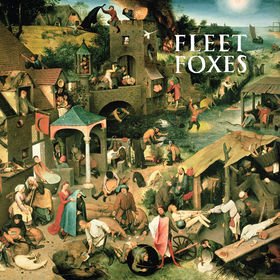
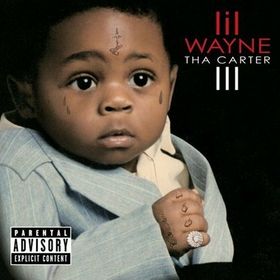
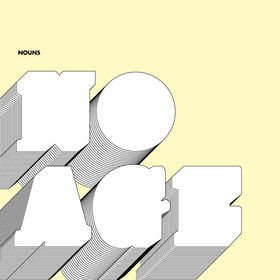
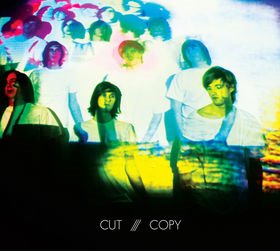
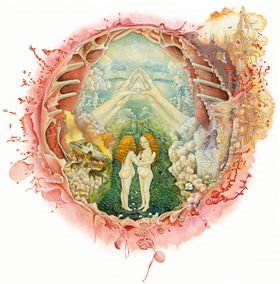

3 comments:
Joey, I'm impressed by this review. Good job.
too much radiohead
I agree with erik, not zack. Excellent review.
Post a Comment